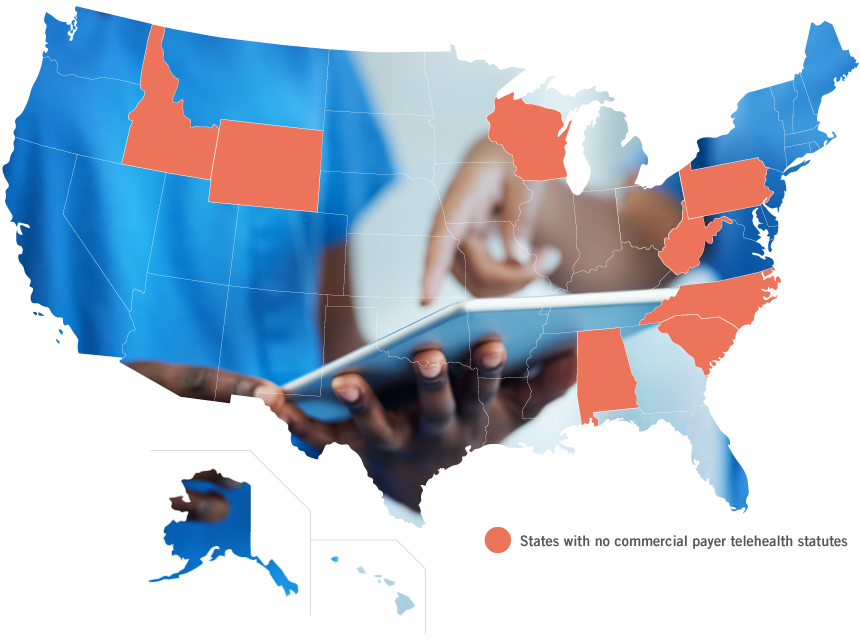Telehealth is Here to Stay: New 50 State Survey of Commercial Insurance Laws Reveals Progress
December 2, 2019

Two years after Foley’s 2017 Telemedicine and Digital Health Survey uncovered a demand for telemedicine and digital health services, as well as coverage and reimbursement to match the growing demand, Foley explores how each state has responded in its 2019 50-State Telehealth Survey plus District of Columbia (DC) of Commercial Payer Statutes.
The survey found that as of October 2019, 42 states maintain some sort of telehealth commercial payer law, however several of these state laws do not actually require coverage or payment parity.
Foley’s report breaks down variances in telehealth commercial statues state-by-state, including:
- States that have commercial payer statutes in place
- States that have coverage parity or limitations
- States that have payment parity
- States that impose originating site limits
- States that have patient cost shifting protection
- State laws that address telehealth narrow or exclusive networking
- States that require coverage of reimbursement of remote patient monitoring
- States that require coverage of store & forward/asynchronous telemedicine
To read the full survey, download the 2019 report.

Author(s)
Related Insights
August 14, 2025
Foley Ignite
Will the Late Summer M&A Rebound Continue into Fall?
The lazy days of summer seem to be behind us as merger and acquisition (M&A) activity is getting a jump start. A recent article in the…
August 14, 2025
Manufacturing Industry Advisor
Tariffs and Your Contracts: Why do delivery terms matter?
In light of a trade landscape rife with tariffs, companies are examining their commercial contracts to judge the exposure to increased costs of production. One area of a supply contract that cannot be overlooked when determining this type of exposure is the delivery terms for the product sale. This is because the delivery terms of a contract may identify the party responsible for payment of tariffs.
August 14, 2025
Foley Viewpoints
SEC Intensifies Scrutiny of Chief Compliance Officers
Two recent SEC enforcement actions serve as a sharp reminder that Chief Compliance Officers (CCOs) can face personal liability for what…

